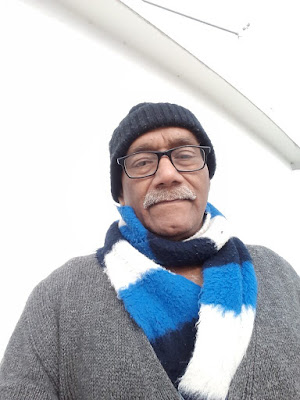“in silence/one with the divine will/growing within”
“squatting/in the middle of the field/a woman with child”
“awake/alone on the housetop/a sparrow”
I saw my ‘security’ in teacher activism and within a year of joining, I became Secretary of the ISM Teachers Association. My active resistance to anything wrong at the institutional level made me, along with a couple of others, rather notorious. I knew I was working in an institution that had no university or research culture. The dominating mindset was that of a polytechnic.
Subsequently, the Administration rectified their error or misunderstanding about me and things became normal as soon as my Ph.D. was awarded. I could survive hostility and opposition from the main departments because I had no vested interests to promote.
If mediocrity dominated the top hierarchy, it was visible in the totality of the institute’s performance. The Dept of HSS could not be expected to perform a miracle with just two teachers! It needed overhauling, faculty addition, new courses, new programs at the postgraduate level, and doctoral-level research. This is what I tried to do, but with continual resistance from various bodies.
With the adoption of need-based and skills-oriented ‘English for Specific Purposes’ (ESP) syllabus, I could do what no other IIT was doing. My research and publications in the area during The 1980s and 1990s had international visibility, even as I shifted my focus to Indian Writing in English, especially poetry, which continues even after my retirement.
The MPhil program we started has also drawn the attention of universities in the country, but unfortunately, it is now closed down.
However, I must emphasize that ISM is one institute where individual faculty is free to do whatever new they want to do. The sky is the limit for a self-motivated person, whatever area they choose to work in. There has been a considerable improvement in academics and research since the institution became an IIT.
But I was disillusioned after joining The Press Trust of India (PTI), New Delhi as a trainee Journalist. A senior sub-editor, Mr. Mukud, who happened to be my table in-charge also, had a natural dislike for me. He would always find fault with my writing/editing. I also remember how several journalists would try to avoid putting their initials on the copies they wrote or edited for fear of being snubbed (for their mistakes) by the Chief Editor, Mr. Raghavan.
I also learned how ‘hearsay’ was the only criterion for one’s future/career. I can’t forget how I had constantly suffered tremendous mental torture for the sin of joining the PTI to become a journalist. I left the organization in utter frustration and switched over to teaching.
What do you think about the quality of journalism in India and how can it be improved?
I am no professional or qualified journalist to make any comments. Most reporting is motivated, be it printed or visual. As a common man, however, I must say that the quality of Hindi reporting has considerably declined, while the reporting in English in The Hindu has continued to maintain a standard worth emulating. About the news on TV media, the less said, the better.
Could you please write one or two lines of your work to inspire our readers?
I am not sure if my writing inspires. I am not didactic or moralist, but an observer, looking within and without, shunning nothing:
“in
silence/one with the divine will/growing within”
“squatting/in
the middle of the field/a woman with child”
“awake/alone
on the housetop/a sparrow”
As a poet I am ever in search of life, getting connected with things ‘here and now’, imaging ‘momentness of a moment’, and enlarging my self to the universal sameness of human feelings. I am also inspired by the human body which is the best picture of the human soul: I glorify it. We are flesh in sensuality and there is divinity in it.
Which book would you recommend to our readers and why?
It’s a difficult question to answer. One should read what one is interested in, or likes. Unfortunately, I keep reading and forgetting. Having said this, I recall a book Deschooling Society by Ivan Illich I read in the early 1970s. It seems relevant in our (post) Covid-19 context, for the writer’s conviction that the ethos, not just the institutions, of society, needs to be ‘deschooled’. Universal education through schooling, for example, is not feasible.
We need alternative institutions to get rid of physical pollution, social polarization, and psychological impotence that are the dimensions of global degradation and modernized misery. The book may provide new insights.
What motivates and inspires you to keep coming up with content. Where does your inspiration lie?
As I said in the beginning after I came to ISM, I lost my peace in the whirlwind of uncertainties of all sorts-- teacher activism, academic research, and professional concerns -- alongside my family responsibilities. The more the tension, the more the writing. Writing and publishing happened as a relief, something therapeutic, or self-healing, or restoring the inner balance, in a rather sterile environment. And, it continues.
Any small, negligible aspect of one’s behavior or
attitude, any ordinary or insignificant event, anything anywhere at any time
can inspire me and become imagery.
Even something read or heard or viewed in the past may get connected with
something NOW and invite me into a poem.
Writing brief, personal lyrics, especially tanka and haiku, has become a
spiritual exercise, helping me pursue what is true, fulfilling, and joyous.
Interviewed by - Ashwarya Jha








.jpeg)


0 Comments